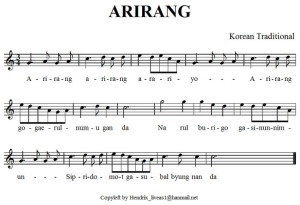A selection of this week’s news and commentary on Korean culture
When I came to Busan in 2000, there were a few small chicken joints in my neighborhood with quirky names like Goopy Chicken, Chicken Syndrome, and my personal favorite, Smoper, which presented a rare case of a foreign word – “smurf” – being transliterated into Hangeul (스머프), which was then used as the basis of its transliteration back  into the Roman alphabet. All of them were more or less interchangeable in what they offered, and they sat pretty much right on top of another. I often wondered how they stayed in business.
into the Roman alphabet. All of them were more or less interchangeable in what they offered, and they sat pretty much right on top of another. I often wondered how they stayed in business.
The answer of course is that they didn’t. According to statistics from the Fair Trade Commission reported by the Chosun Ilbo, though over 41,000 chicken restaurants opened last year, 24,000 thousand went out of business. In other words, a chicken restaurant fails every 22 minutes, while the market inches even further beyond saturation.
While some point to a copycat mentality in explaining the proliferation of chicken places, others have pointed out that the explosion has its roots in the 1997 Asian economic crisis, when many out-of-work salarymen were attracted to the business by its low entry fee and operating costs.
 I got a chuckle out of this short video by NPR reporter Elise Hu, who recently visited a few of Seoul’s animal cafes. As Hu notes, animal cafes have been popping up in many Asian cities, and are often popular because they provide a way for people who can’t have pets to get their regular fix of animal interaction. While she quickly takes a shine to the dog cafe, the raccoon cafe is another story.
I got a chuckle out of this short video by NPR reporter Elise Hu, who recently visited a few of Seoul’s animal cafes. As Hu notes, animal cafes have been popping up in many Asian cities, and are often popular because they provide a way for people who can’t have pets to get their regular fix of animal interaction. While she quickly takes a shine to the dog cafe, the raccoon cafe is another story.
I also came across this piece on kimchi juice, which is not referring to the liquid that pools at the bottom of your kimchi container, but a bottled “100% organic kimchi juice” that the manufacturer describes as “fresh, raw, and alive” and is selling for $16.99 per 32 ounce bottle.
It has an Amazon rating of 4.2 stars, but some of the reviews seem a bit, shall we say, overenthusiastic. One reviewer called it “the nectar of the gods”, while another had this to say:
“My kids used to argue about who got the juice from the Kim Chi jar, now they can drink to their hearts content.”
While I don’t see myself fighting my kids over who gets to guzzle the last drop, I will say

Kimchi cocktails are another possibility
that I have found one use for kimchi juice – the old-fashioned, bottom-of-the-tub kind, that is: I drizzle it into my kimchi bokkeumbap to give it a bit of added moisture and flavor.
One of the other takeaways from the article is that the product contains a microbe that is named after kimchi: a species of lactobacillus called lactobacillus kimchii that was proposed as a distinct species in 2000 by JH Yoon et. al. Time will tell if the proposed classification holds up to peer review, but for now, our wide and wonderful world contains a living organism named for kimchi.



 Koreans are one of the most-sleep deprived groups of people in the world, clocking fewer hours of sleep than any other OECD country. Because of this, it’s still common to see commuters dozing on trains and buses, students nodding at their desks, and office workers consuming much more caffeine than was the case even a few years ago.
Koreans are one of the most-sleep deprived groups of people in the world, clocking fewer hours of sleep than any other OECD country. Because of this, it’s still common to see commuters dozing on trains and buses, students nodding at their desks, and office workers consuming much more caffeine than was the case even a few years ago.




